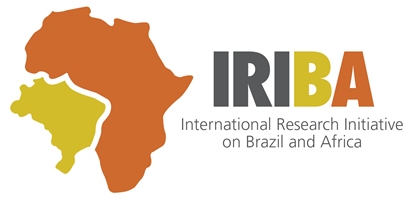Data
Key open data sources for economic and social indicators in Brazil can be accessed via:
- IPEA Data
- The Institute for Applied Economic Research (IPEA) is a public foundation linked to the Brazilian Presidency. It regularly updates a wide range of economic, demographic and social data on Brazil, with some English navigation.
- Brazilian Central Bank (BCB)
- The Brazilian Central Bank regularly updates a wide range of financial data on currency, credit, financial markets, public finances and balance of payments. Information is provided in English.
- Brazilian Geographical and Statistical Agency (IBGE)
- IBGE is a public foundation linked to the Brazilian federal administration and is published for data in English on the environment, agriculture, consumer prices and employment. It conducts a census in Brazil every ten years (last taken in 2010) and published regular household surveys.
- DIEESE
- DIEESE (Inter-Union Department of Statistics and Socio-Economic Studies) was created by the Brazilian trade union movement to develop research on the labour market. It published information on the cost of living and employments in Portuguese.
- CNI (National Industrial Confederation) Statistics
- The CNI is a trade body for Brazilian Industry, which publishes a number of industrial indicators in Portuguese.
- IDLA Economic, demographic, and political database for Latin America
- The IDLA database, developed by UNU – WIDER, compiles published statistical information for the analysis of income distribution in the Latin America region over the last two decades, as well as in those of macroeconomic, taxation, labour market, and social policy in most countries of the region. Published in English.
- Latinobarometro
- Latinobarómetro is an annual public opinion survey that involves some 20,000 interviews in 18 Latin American countries, representing more than 600 million inhabitants. The survey tracks people’s opinion, attitudes, behaviour and values and is available in English.
- OECD Latin America Revenue database
- Revenue Statistics in Latin America is a joint publication by OECD, the Economic Commission for Latin America and the Caribbean (ECLAC) and the Inter-American Centre of Tax Administrations (CIAT). It provides internationally comparable data on tax levels and tax structures for a selection of Latin American and Caribbean (LAC) countries.
- The Quality of Government database
- This data, complied by an institute hosted by the University of Gothenburg, focuses on the quality of governments. The QoG Expert Survey is based on a survey of experts on public administration around the world, covering 107 countries.
- Fundação Getúlio Vargas, IBRE
- FGV complies a range of economic indicators, available in Portuguese.
- SAGI, MDS
- The Secretariat for Evaluation and Information Management publishes social, demographic and economic indicators for the municipalities, states, regions and Brazil.
Additional Briefings
- How Brazil has reduced inequality
- Tax and the social contract in Brazil
- Putting Brazil back on the path to prosperity
- Charting Brazil’s development
- Bridging the urban – rural divide in Brazil
Videos
Watch short interviews about the IRIBA research at our YouTube channel.
Research Directors Armando Barrientos and Ed Amann spoke to UNU Wider at the start of the project.
Media Coverage
- Can the next Brazilian president put the country back on the path to prosperity? The Guardian, October 2014
- Brazil: A role model for development? The Guardian, April 2014
- Do Brasil para a África: Mais, June 2014
- Punição a corruptos tem apenas valor simbólico, diz pesquisadora: Folha de S.Paulo, December 2013
Infographics
Slideshares
- Is there a Brazilian model of development?
- Explaining the decline in earnings inequality in Brazil
- Infrastructure, regulation and development: Evidence from Brazil
- Institutions for macro stability in Brazil
- What lessons can vocational training in Brazil offer to Africa?
- Antipoverty transfers and inclusive growth in Brazil
